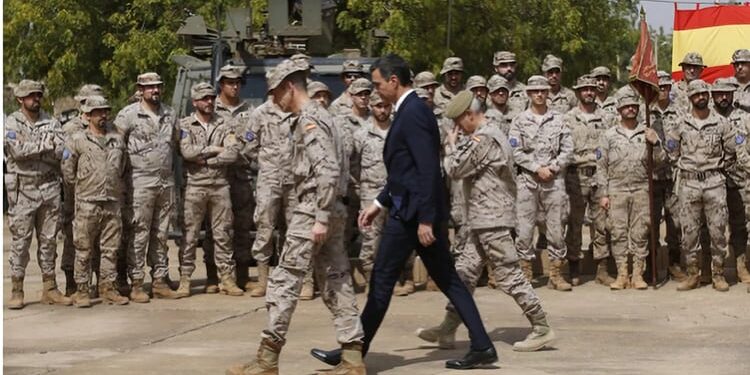
Óscar Ruiz
Migration expert and international analyst
The Europeanisation of NATO will tend to increase military personnel and ensure that a significant part of the population is able to help efficiently in an emergency.
Croatia will reintroduce compulsory military service from 2025, Defence Minister Ivan Anusic announced, joining the select club of European or Atlantic Alliance countries that already have some form of compulsory military service.
This change will affect the country’s male citizens, who will have to fulfil this future national duty. Minister Anusic said that salaries have been increased and the material conditions of military personnel have been improved, and the armed forces are being equipped and modernised in line with agreements reached with NATO allies. The aim, according to the minister, is to have a stronger and more efficient military force in the near future.
This news has been criticised in his own country, but more for an economic issue and in relation to the budget deficit than for a social issue. Anusic mentioned that there are no plans to reduce defence spending, given the current circumstances and the country’s security needs. Croatia had suspended compulsory military service in 2008, replacing conscripts with a professional army following its accession to NATO in 2009.
Of the 18,000 young Croatians who turn 18 annually, between 4,000 and 4,500 are expected to join the armed forces. Those who do not wish to do military service will have the option of serving a four-month period in civil defence service, contributing to natural disasters or to infrastructure and social assistance projects. Women, while not obliged to perform this service, may participate on a voluntary basis if they wish to do so.
In terms of budget, the Croatian government aims to meet NATO’s requirement to spend two per cent of gross domestic product on defence by 2027, three years ahead of schedule. The country’s current defence budget amounts to €1.8 billion, which represents almost 1.9% of GDP, and has seen a 122% increase since 2016.
Military recruitment in Europe
Several countries in Europe and NATO maintain systems of compulsory military conscription for their citizens, although the characteristics and length of service vary from place to place. Norway, for example, has implemented a system in which both men and women must register, although only a portion of the young men are selected to serve for a 12-month period. In Sweden, compulsory military service was reintroduced in 2017 and affects both men and women over the age of 18, who must serve 11 months.
Several countries in Europe and NATO maintain systems of compulsory military conscription for their citizens, although the characteristics and length of service vary from place to place. Norway, for example, has implemented a system in which both men and women must register, although only a portion of the young men are selected to serve for a 12-month period. In Sweden, compulsory military service was reintroduced in 2017 and concerns both men and women over the age of 18, who must serve 11 months.
Finland follows a scheme in which all men must perform military service, the duration of which ranges from 165 to 347 days, depending on training, while women can choose to serve on a voluntary basis. Similarly, in Denmark, men are required to serve between 4 and 12 months of military service, depending on the branch to which they are assigned, and women also have the possibility to join on a voluntary basis.
Switzerland requires men over the age of 18 to undergo 21 weeks of basic training as part of their military service, although women can also join on an optional basis. In Greece, all men between the ages of 19 and 45 must serve 9 months in the army or 12 months in the navy or air force.
Austria allows its male citizens to opt for 6 months of military service or 9 months of alternative civilian service. In Estonia, men must serve between 8 and 11 months of compulsory service, while women may serve voluntarily. Lithuania reintroduced military service in 2015, which affects men aged 19-26, who must complete a 9-month period.
Cyprus requires all men to complete 14 months of military service, while Turkey requires men over the age of 20 to complete 12 months of service. These countries maintain these conscription systems as an integral part of their defence policies.
In one way or another, European countries seek to augment either their standing military forces or to integrate a population that is capable of assisting the military or civilian structures in the event of an emergency. Although Spain is a different case and has perfectly divided these missions, there has always been discussion of the need for compulsory military service of at least several weeks with subsequent retraining for young people born here, which would certainly be an interesting way of subsequently recruiting young people who, having tasted the service of arms, decide by vocation to join their lives to this profession.







